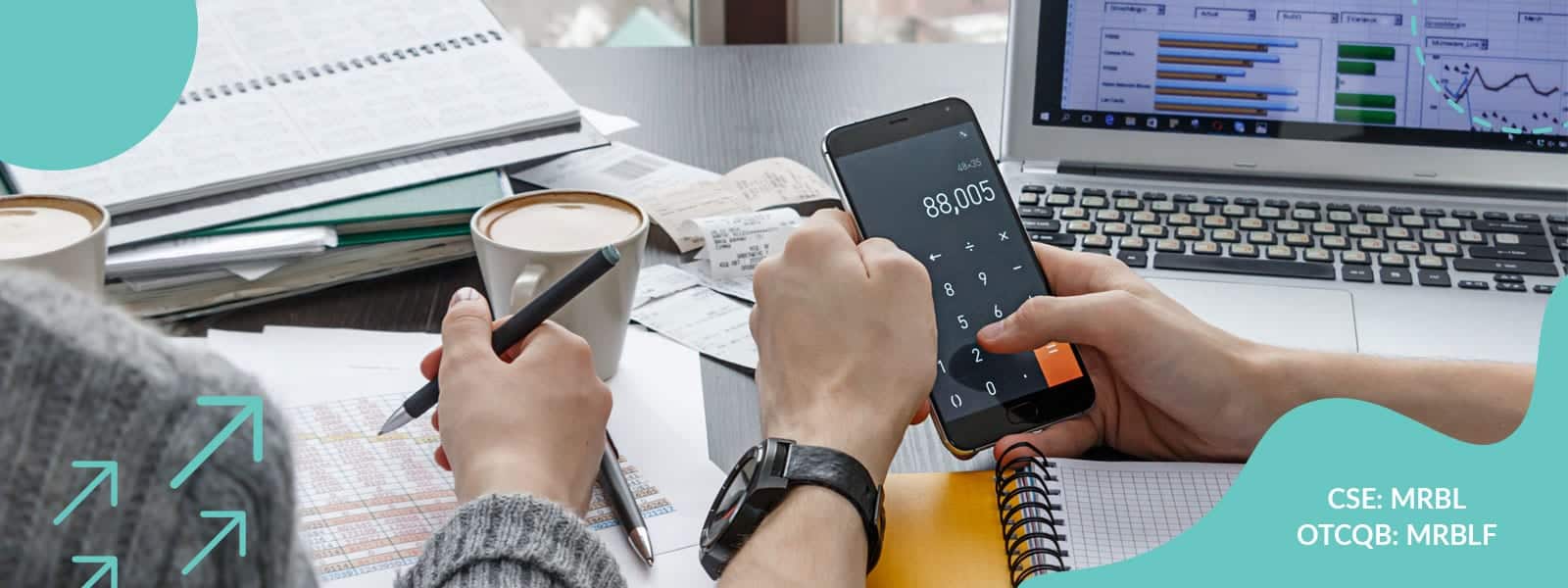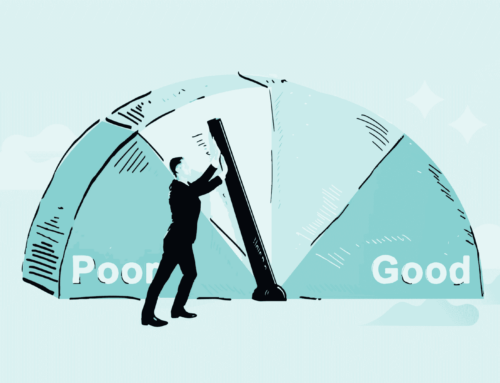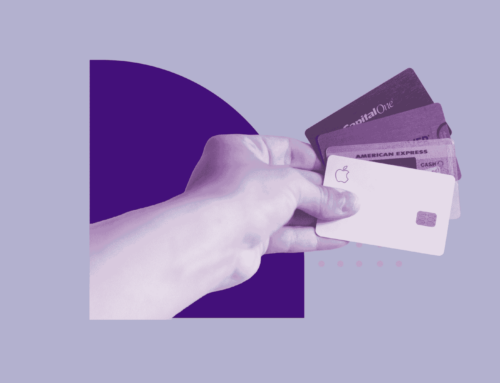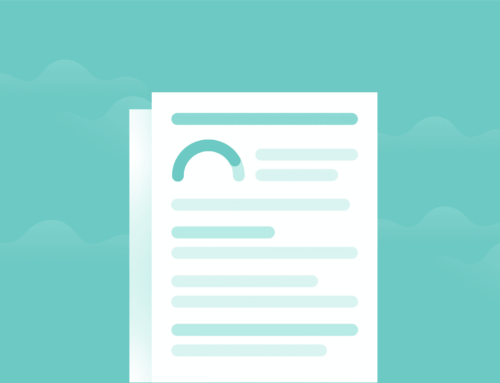It’s Financial Literacy Month!
We recently discussed the impact of financial literacy on your bottom line, and it’s clear understanding your finances is vital. This year marks the 10th anniversary of Financial Literacy Month. This year has been a challenging time for many Canadians due to the economic impacts of the COVID-19 pandemic. The impacts of COVID-19 has resulted in job loss, debt, and financial stress. With this, we see greater demand and necessity for financial education.
Following this, Financial Literacy Month is more important than ever. It’s important to ensure that Canadians can get back on their feet and move towards a positive financial future. Whereas it’s not easy to change your financial habits, this month should give you the kick-start you need. Let’s learn how you can utilize this year’s Financial Literacy Month and learn, educate and practise better financial habits with Marble.
What is Financial Literacy?
To be financially literate, one must possess the knowledge and ability to make good financial decisions. For instance, Financial literacy is a combination of credit and debt management. It ensures you’re equipped with the necessary knowledge to make financially responsible decisions. For example, this means the understanding of how chequing accounts work, how to use a credit card and the ability to manage debt.
Resulting from this, financial literacy can impact a family when balancing a budget, buying a home, paying for education, or facilitating retirement. More often than not, a lack of financial literacy is problematic. As a result, it can cause many problems for families across the globe regardless of their salary and education level. With this, many consumers still struggle to grasp many of the core financial principles and practices. This can often result in wrong or bad financial decisions, leading to pro-longed debt. In order to understand and negotiate the financial landscape, manage financial risks effectively, and avoid financial pitfalls, financial education must be available for everyone to access and utilize. Still, evidence shows that highly educated consumers with high incomes can be just as ignorant about financial issues as less-educated, lower-income consumers.
Why is Financial Literacy Important?
Financial literacy is essential to help consumers save enough money to aid their retirement, fund their education and support their family. With the right financial education, this should all be done while avoiding high debt levels that might result in bankruptcy, insolvencies, consumer proposals, and foreclosures.
It was reported from a recent survey by MNP that 85% of Canadians agree that financial literacy in Canada is lacking. This lack of knowledge is contributing to Canada’s consumer debt problem (87%). Some contribute this to the school system to lead the charge, as 94 percent of Canadians agree that Canada’s schools need to teach financial literacy skills to children better. It also resulted that 85 percent of respondents wish they personally had the opportunity to learn more about finance and the economy while in school.
Financial illiteracy can affect anyone from any walk of life. For example, this can include students, young people, professionals. This is why financial literacy is important. If used correctly, it can help combat the struggles associated with it.
The Impacts Of Poor Financial Literacy
Poor financial literacy can have many negative effects on Canadians. For example, Canada’s debt levels are increasing rapidly, with average household debt now at 177% of disposable income. In other words, this means that there is $1.77 in credit for each dollar of household disposable income. The average amount of household debt, excluding mortgages, is $20,759. According to the 2019 Canadian Financial Capability Survey, roughly one in six Canadians (17%) have monthly expenditures that exceed their monthly income. One in four (27%)needed to borrow to pay for essential expenses.
Developing and maintaining a budget is an important part of becoming financially literate. For example, studies have shown that Canadians who budget their monthly expenses are half as likely to fall behind on their financial commitments than those who don’t keep a budget. With this, a sign of financial literacy is planning for savings and retirement. It’s been proven that Canadians who do this are more confident, knowing how much they need to save for retirement. But budgeting is a sign of even greater financial literacy. With this, 61% of Canadians who keep a budget indicated that they would be able to come up with $2,000 to cover an unexpected expense. In comparison, only 46% for those who feel too time-crunched or overwhelmed to create a budget.
How Can Marble Help?
At Marble, we believe that integrating certain financial practices as standard to your life can help improve your current situation. From here, we have developed content for you to use to help start your journey to a better financial future. This includes our educational courses, our monthly podcasts and our weekly blog posts. Let’s learn more:
Marble Maestro
We have developed three different courses covering three core topics we feel are essential for your financial literacy. Our courses focus on teaching you essential learnings on Debt, Savings and Credit. Each course is accompanied by an educational text, a video and a quiz at the end of each module to help reinforce your learnings. Check out a little bit about each of our courses:
MyCredit
You’ll learn the fundamental principles on how to monitor and improve your credit score. Above all, after graduating from this course, you will have the power to gain great credit by utilizing MyMarble. To take this course, visit our learning hub here: https://learn.mymarble.ca/collections/mycredit.
MyDebt
In this course, begin your journey in tackling your debt. Most importantly, you’ll learn all about how to handle your debt, and how you can utilize your income to help become debt-free, quicker. To take this course, visit our learning hub here: https://learn.mymarble.ca/bundles/mydebt
MyBudget
Get ready to become a budget boss. In addition, this course will teach you the best practices when it comes to properly manage your income and expenses. All manageable through MyMarble. To take this course, visit our learning hub here: https://learn.mymarble.ca/bundles/mybudget
Bread & Honey Podcast
Bread And Honey is the brand new money podcast. Most importantly, your host Grace and financial guru Patricia aim to delve into the world of personal finance and help you discover all the need-to-knows about your credit score, budgeting, saving, investing, and so much more, speaking to guests from a wide range of financial backgrounds. This podcast is the perfect way for you to brush up on your financial skills, in an easy-to-listen format of a podcast. The podcast is available on both Spotify and Apple Podcasts. You can also access each episode on Youtube. In the meantime, you can visit our website to check out the latest episode here.
Educational Blog Content
Each week, our team at Marble creates a blog post to help you learn more about your personal finances. Firstly, our topics include improving your credit score, debt, how to budget, saving and so much more. Likewise, our blog posts are free to access and available on demand. To explore our content, you can visit our educational blog here.
About Marble Financial Inc. (CSE: MRBL; OTCQB: MRBLF). We are a group of forward-thinking financial technology experts that fully understand the benefits and drawbacks of credit in Canada. Marble helps Canadians improve their credit to gain access to prime lending. Through our industry-leading proprietary technology solutions: Fast- Track, Score-Up, and Credit-Meds. Since 2016, Marble is proud to have empowered thousands of Canadians to a positive financial future. Above all, we continue to establish ourselves as leaders in financial wellness.






